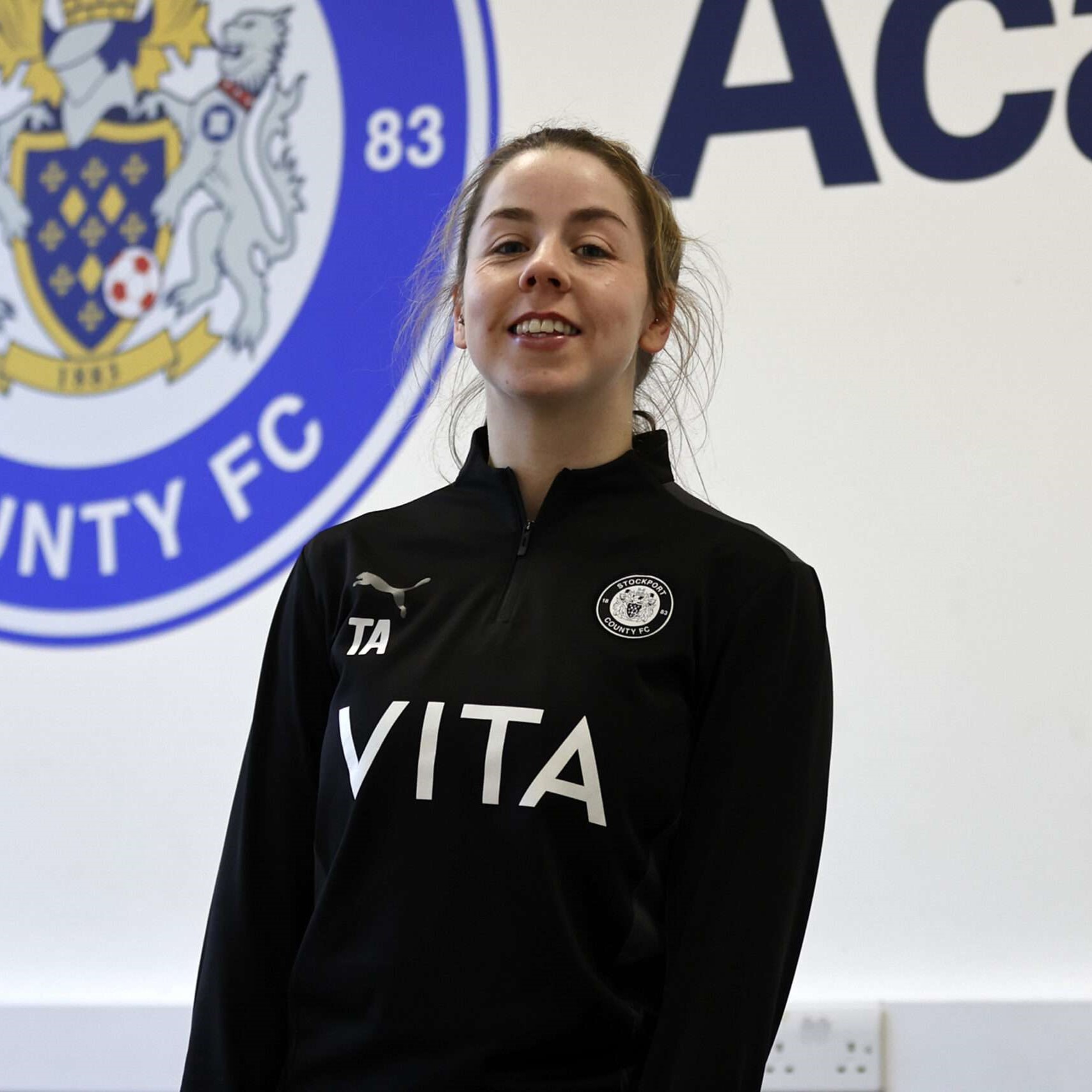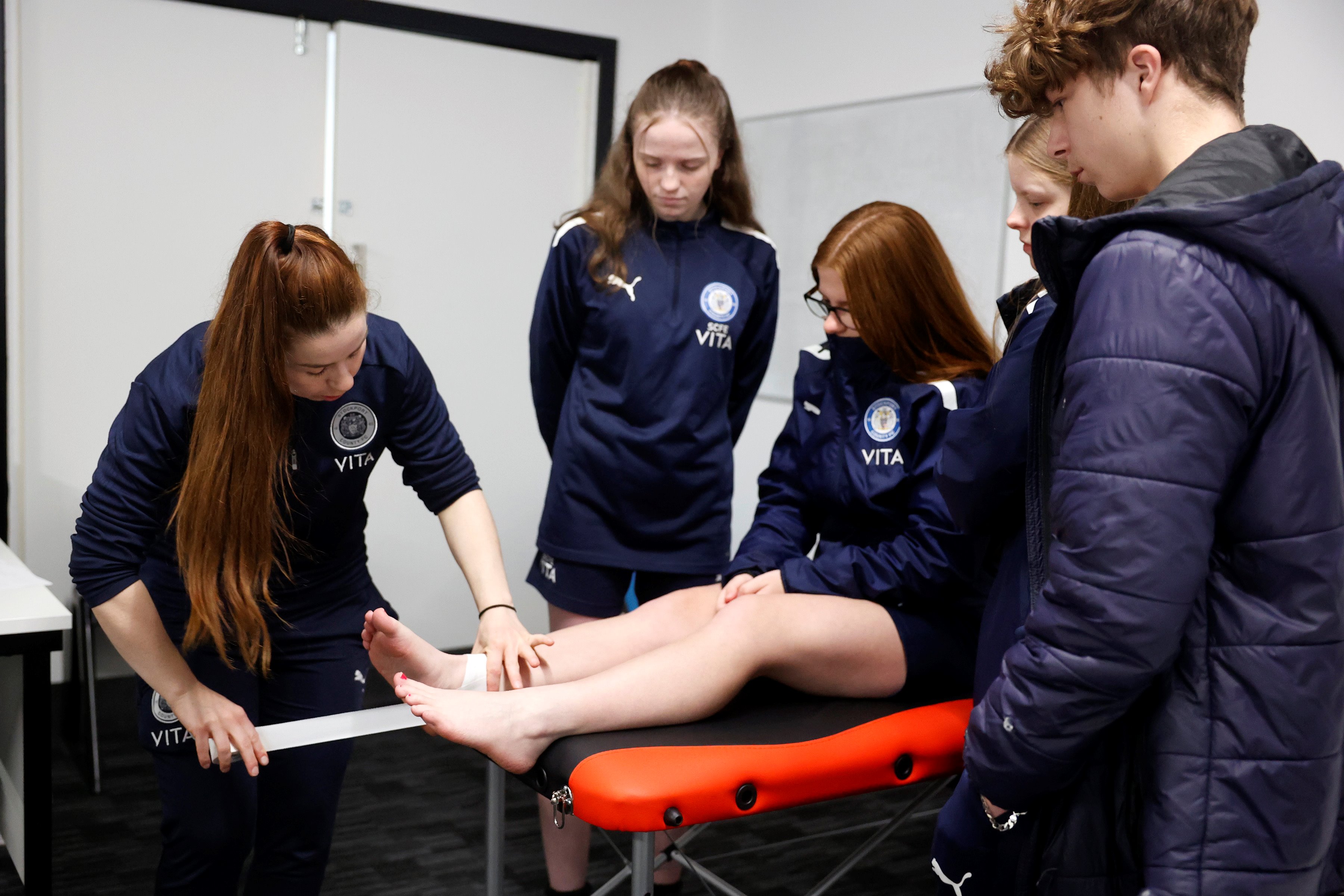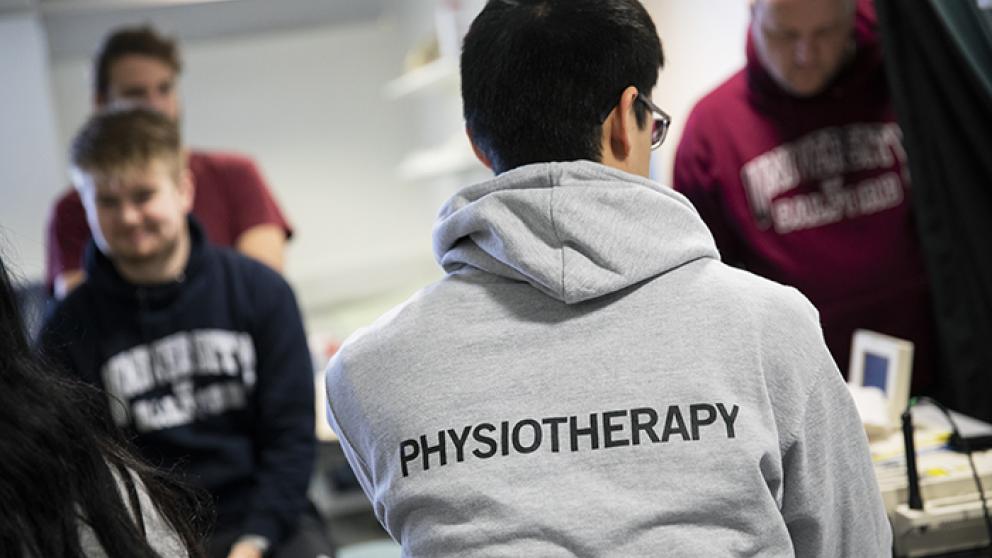Tanya Audas - BSc (Hons) Physiotherapy
We are proud to be one of the leading providers of physiotherapy education in the UK, ranking first place overall in the North West (The Guardian) and first in England for ‘Teaching’ and ‘Student Experience’ (The Times). Hear from Tanya, a Physiotherapist degree apprentice and Stockport County Academy’s Lead Rehabilitator about her experience combining work with study at the University of Salford.
Why did you choose the degree apprenticeship?
I did my Sports Rehabilitation degree first; I dabbled in a few non-league clubs and worked on an RAF base before joining Stockport County and I've been here ever since. My role has changed quite a lot over the years. At first it was purely sport rehabilitation for one squad. As the club has grown my role has grown to include more leadership within the club's medical department and involvement in the BTEC’s enrichment programme, creating and supporting work experience opportunities in relevant healthcare fields.
When Stockport County got promoted into League One there was a shift as now, if you want to progress into lead roles, you need to have a Physiotherapy degree and be HCPC registered. This was the driving force for my employers to put me through the degree apprenticeship. My employer was happy to support me so that I could take on lead or head of medical roles. I found the degree apprenticeship and they were really on board. It all fell into place perfectly and now, after seeing how it works, my employer has offered the apprenticeship to another member of staff who is now in their second year.
The reason I chose the apprenticeship route instead of a two-year master's programme was that I knew I was pregnant, so there was no way I could stop working or drop down to part-time. I couldn’t have done the degree without the apprenticeship so I'm grateful that Salford offer it. It's made a massive difference to me. Plus, I know that getting this Physiotherapy degree will open so many doors for me. I have options for progression in any area with a good foundation.
What does your apprenticeship involve day-to-day?
I attend University for two half-days a week and we’re currently on the research module so we’re learning a lot about research methods with the aim of not basing practice on poorly designed research. In other modules, we’ve learned about neurological diseases, lung conditions and public health. A lot of the time we are face to face but for certain modules we might be online or be set group projects.
In my sports rehab role, I do player assessments, complete gym-based rehabilitation and do pitch side rehab to prep for training and games. In my enrichment role I find work experience opportunities around healthcare professions for young people and create lesson plans based on my experience as a sport rehabilitator and apprentice. I always focus on how to deliver information as practically as possible and aim to make exercise fun and engaging.
How have you found your apprenticeship experience?
My experience has been really good and, as this is my second degree and I work in a college environment, I know how good the standard of teaching is here. It's made a huge difference in my role as it’s given me a broader understanding of physiotherapy and how a physiotherapist can contribute to a football club outside of sporting injuries. Personally, it’s also helped me to see areas of healthcare that are wider than sports and, through my placements, experience different types of environments. For example, in my critical care placement I’ll get to see what it's like to work at a hospital on a ward.
The degree apprenticeship has been a valuable refresher of some of my previous learning and I’ve gained lots of new knowledge. In football, you see a lot of lower limb injuries so you de-skill in upper limb skills. Now, I feel a lot more confident in being able to diagnose upper limb and spinal issues than I did before coming back to University and I've been able to provide training to other staff as well.
What has been your proudest achievement from your apprenticeship?
I’m proud to have achieved firsts in every module as written work is not my forte, and proud that the concept for a project I did as part of my leadership placement has extended beyond my six weeks and into the work that Salford do at partner colleges.
I’m also proud to have been able to use my knowledge to support other staff members around me and give good diagnoses on player injuries when supporting colleagues. Mostly I’m proud to have done all of this when I have a two-year-old and a job!
How would you describe the support that you've received from the University?
I think the support from Salford has been excellent - the staff are really lovely and approachable. My Learning and Development Coach has been brilliant too. She’s great at breaking things down and has been really accommodating. She always has ideas about how I can do things better and integrate my workplace into what's needed for the apprenticeship.
What has been really valuable to me is that Salford has treated me as a person, not just another student. When I applied to University, I was pregnant, and they took that into account. The team looked at the modules that were coming up and my experience, and allowed me to sit my placement early so that I didn’t have to defer a year. I was really grateful that they took the time to find out what I needed to make an informed decision.
I'm dyslexic as well, and Salford were great at acting upon that quickly. I was given support which has been unreal, and I don't think I could have achieved the scores in my assignments that I have without that.

What would you say to someone considering an apprenticeship?
I think it's a no brainer. The apprenticeship has given me the chance to reflect on what I’ve achieved and that has been valuable - especially because one of the most important aspects of healthcare is reflective practice.
Do you have any advice for future apprentices?
Fill in your time sheets! And from a club setting, be open to new opportunities and don't pigeonhole yourself by thinking that you’ll only work in football. Keep your thoughts broad.




